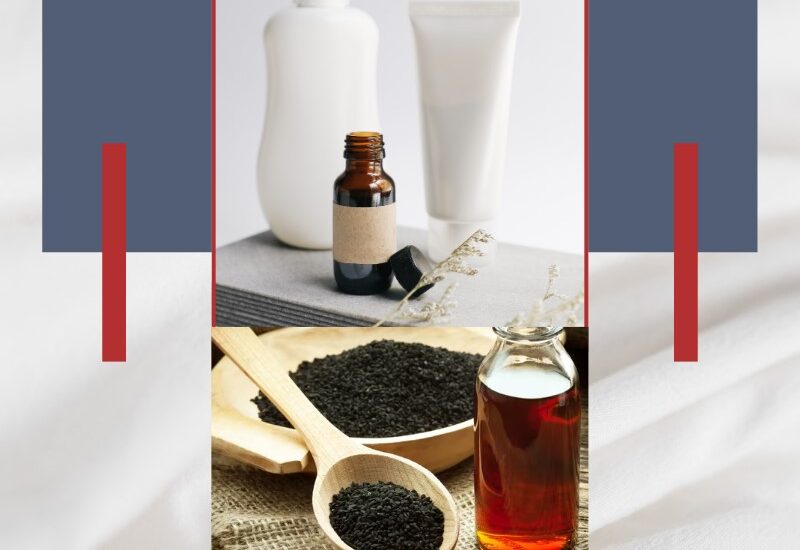Let me ask you something — have you ever come across a home remedy that your grandma swore by, but you kinda brushed off thinking, “Eh, old-school stuff can’t be that powerful”?
That was me the first time I heard about black seed oil. A friend handed me this tiny dark bottle one afternoon and said, “Try this — one teaspoon a day and thank me later.” I gave her that look — the “yeah right” look — and shoved it in my kitchen drawer.
A few weeks later, curiosity (and honestly, a bad case of seasonal allergies) made me finally open it. Fast-forward to today, and that same bottle sits proudly on my counter, right next to my morning coffee mug.
This isn’t some new-age trend — black seed oil has been around for thousands of years. From Cleopatra’s beauty secrets to ancient healers calling it “the cure for everything but death,” this stuff has quite the reputation. And let me tell you — it lives up to the hype.
Table of Contents
So, What Exactly Is Black Seed Oil?
Let’s start with the basics. Black seed oil comes from the Nigella sativa plant — a small flowering herb found in South Asia and the Middle East. The seeds are also called kalonji or black cumin, though they’re totally different from the cumin you throw in your curry.
When pressed, these tiny black seeds release a golden-black oil packed with nutrients, antioxidants, and something special called thymoquinone — the real hero behind its magic.
The fascinating part? This same oil was found in King Tutankhamun’s tomb. Yep — the ancient Egyptians valued it so much they buried it with their pharaohs. That alone should tell you it’s something special.
Why Everyone’s Talking About Black Seed Oil
I’ll be real with you — I don’t buy into “miracle cure” claims easily. But black seed oil isn’t hype; it’s history meeting science. Here’s why people (myself included) keep coming back to it:
1. It Strengthens Your Immunity
I started taking a teaspoon daily during flu season — mixed with honey because it’s bitter on its own — and I noticed I wasn’t catching every little cold going around. It’s packed with antioxidants that help your body fight off germs naturally. Think of it like your immune system’s personal bodyguard.
2. It’s a Skincare Dream
When I tell you this oil transformed my skin, I mean it. A few drops mixed into my night cream helped calm breakouts and even out my tone. Its anti-inflammatory magic soothes irritation, while the antioxidants give your skin that healthy, “I’ve-been-sleeping-well” glow — even when you haven’t.
3. It Helps Your Digestion
I didn’t expect this one, but after heavy meals, black seed oil really helps. It eases bloating and supports your gut. You can actually feel the difference — no more that uncomfortable “I ate too much” feeling that ruins your evening.
4. It Loves Your Hair Too
If your hair has been feeling dull, dry, or thinning (hello, stress), this oil can help. I warm it up slightly and massage it into my scalp — it’s relaxing and nourishing. Over time, my hair felt stronger, shinier, and somehow, just healthier overall.
5. It Supports Heart Health
Studies show black seed oil might help manage cholesterol and blood sugar levels. I won’t call it a cure, but if you’re someone who prefers natural support instead of adding more pills to your cabinet — this is worth a try.
How I Use Black Seed Oil Daily
You don’t need to be fancy to add this into your routine. Here’s how I make it work for me:
- Morning ritual: 1 teaspoon mixed with a spoon of honey. It wakes me up better than coffee sometimes.
- Skincare: 2–3 drops blended with my moisturizer at night. I swear it makes me wake up looking more refreshed.
- Hair care: A weekend oil massage before shampooing. My scalp feels calmer, and my hair doesn’t frizz up as much.
Fair warning though — black seed oil has a strong, earthy, peppery taste. Not the best flavor in the world, but trust me, you get used to it.
The Science-y Stuff (In Simple Words)
So, what makes black seed oil tick?
One word: thymoquinone.
It’s an active compound with anti-inflammatory, antibacterial, and antioxidant properties. Basically, it helps reduce inflammation, fights off bad bacteria, and protects your cells from damage. Scientists have studied it for everything from asthma and arthritis to blood sugar control and skin health — and the results are encouraging.
It’s like nature’s built-in multi-vitamin wrapped up in a single oil.
From Pharaohs to Pharmacies
What blows my mind is that this tiny seed has been relevant for centuries. Ancient healers, Greek physicians, and even Islamic scholars praised it. There’s a famous saying from Prophet Muhammad (peace be upon him):
“Use the black seed, for it contains a cure for every disease except death.”
Now whether you see that as spiritual wisdom or poetic truth, the takeaway is the same — this oil was respected long before modern medicine existed.
A Few Things to Keep in Mind
Before you go all-in, a quick reality check:
- Stick to 1–2 teaspoons per day. More isn’t better here.
- Always buy cold-pressed and 100% pure black seed oil. Look for dark bottles — light breaks it down.
- If you’re pregnant, nursing, or on medication (especially for diabetes or blood pressure), talk to your doctor first.
Your body will thank you, but your taste buds… might take a week to forgive you.
My Honest Experience After 3 Months
After about three months of taking it daily, here’s what I noticed:
- My digestion felt smoother.
- My skin looked clearer — even my dark circles softened a bit.
- I got fewer random sniffles during weather changes.
- And I just felt… more balanced.
It wasn’t an overnight miracle, but it was one of those slow, steady changes that sneak up on you — like realizing your jeans fit better or your skin feels softer out of nowhere.
Choosing the Right Black Seed Oil
Here’s what I learned the hard way (after buying a cheap one that tasted like burnt toast):
Look for “cold-pressed” on the label.
Buy from a trusted brand — preferably organic and without additives.
Dark glass bottle only — sunlight ruins the nutrients.
Origin matters: Ethiopian, Egyptian, or Turkish seeds are often top-tier.
A few extra bucks for quality will make a huge difference in both taste and effectiveness.
Why Black Seed Oil Still Matters in 2025
Let’s be real — the world’s full of health fads. One week it’s collagen, the next it’s sea moss, and before you blink, there’s some new “superfood” trending on TikTok. But black seed oil? It’s not a trend. It’s a tradition that’s survived thousands of years because it actually works.
In a world that’s obsessed with fast fixes, there’s something comforting about going back to nature’s simplicity — using something that’s been trusted since the time of pharaohs.
Maybe that’s why I keep coming back to it. It’s not just about health; it’s about connection — to history, to nature, and honestly, to myself.
Final Thoughts
If you’ve made it this far, you’re probably wondering: Is black seed oil really worth it?
Here’s my answer — absolutely, yes.
It’s not a magic potion, but it’s a gentle, natural helper that supports your body from the inside out. It’s one of those small, simple habits that can quietly make a big difference over time.
So if you’re curious, give it a try. Start with one teaspoon a day. Pair it with honey if the taste makes you wince. Stick with it for a month — and notice how your body feels.
Sometimes, the best solutions aren’t hiding in a lab or behind fancy packaging. They’re sitting right in front of us — bottled up in something our ancestors already figured out.
And black seed oil? Well, it’s proof that old wisdom never really goes out of style.



